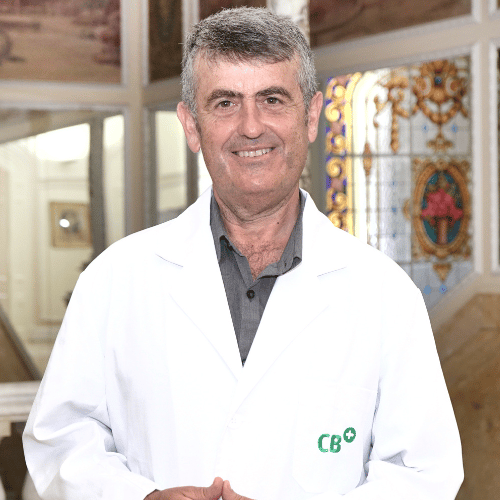All men have a prostate, but few know exactly what it does, and many only remember it when changes or discomfort appear. The prostate remains a great unknown, surrounded by myths, taboos and misinformation that can delay diagnosis or create unnecessary fear.
At CreuBlanca, where preventive medicine and advanced technology are fundamental pillars, we want to clarify the most important concepts about the prostate and debunk some of the most common myths.
What is the prostate and why is it so important?
The prostate is a gland in the male reproductive system, about the size of a walnut, located just below the bladder. Its main function is to produce part of the seminal fluid, which is essential for transporting and nourishing sperm.
As men age, the prostate can increase in size, a condition known as benign prostatic hyperplasia (BPH), or develop other problems such as infections or tumors.
Prostate cancer is the most common cancer among men in Spain, with more than 30,000 new cases each year, according to the Spanish Society of Medical Oncology (SEOM). However, when detected early, the survival rate exceeds 90%. That’s why prevention and regular check-ups are essential.
Myths and facts about the prostate
- Myth 1. “If I have no symptoms, my prostate is fine.”
False. One of the most common misconceptions we see in consultation is believing that “no discomfort means no problem.” Prostate cancer usually develops slowly and may not cause symptoms in its early stages. In fact, most diagnoses are made in patients who feel perfectly fine and come in for a routine check-up. The absence of symptoms does not equal good prostate health. That’s why we recommend regular check-ups tailored to age and family history. This allows early identification of any abnormalities, before they become apparent.
- Myth 2. “The rectal exam is the only test available.”
False. Although the rectal exam remains a useful tool to evaluate the prostate, it is not the only method and is not always necessary. Nowadays, there are complementary tests that improve diagnostic accuracy and patient comfort, such as the PSA blood test, which provides key information about the gland, multiparametric MRI, which allows for detailed visualization of internal changes, or image fusion-guided biopsy, which precisely locates any suspicious areas.
- Myth 3. “Prostate cancer only affects men over 60.”
False. While age is a risk factor, more and more cases are being diagnosed between ages 45 and 55. Genetics also play an important role: having a close relative (father or brother) with prostate cancer doubles or triples the risk. In addition, other factors such as lifestyle and diet can increase the likelihood of developing the disease. Therefore, it’s recommended to have regular check-ups starting at age 45, or earlier if there is a family history. Early detection makes all the difference.
- Myth 4. “Prostate problems mean less sex life.”
False. This is one of the myths men worry about most, and it’s worth clarifying. Prostate health is not directly linked to sexual performance. It’s true that certain prostate conditions or treatments can temporarily affect erectile function or ejaculation, but today we have advanced treatments and surgical techniques that allow for an excellent quality of sexual life. Open communication with the urologist is key: every case has solutions.
- Myth 5. “You only need to get checked if you have trouble urinating.”
False. Urinary symptoms such as difficulty starting to urinate, weak flow, or increased nighttime frequency usually appear when the prostate has already enlarged significantly. Waiting for this to happen may mean missing an early diagnosis. The ideal approach is to set up a regular check-up schedule with your urologist, especially from the age of 45–50. Early detection allows for simpler, less invasive, and more effective treatments.
Interesting facts you might not know
- The prostate is about the size of a walnut, but with age it can grow to the size of a mandarin—or even larger.
- It produces most of the seminal fluid, essential for male fertility.
- Frequent ejaculation may have a protective effect against prostate cancer.
- Following a Mediterranean diet rich in fruits, vegetables, and extra virgin olive oil is associated with a lower risk of prostate diseases.
- Multiparametric MRIs can detect suspicious lesions even before they are palpable during a rectal exam.
Taking care of your prostate is taking care of your future
Prostate health should not be a taboo. Prevention, healthy habits, and advanced medical technology make it possible to diagnose early, treat effectively, and live without fear.
At CreuBlanca, we combine cutting-edge technology, medical expertise, and a personalized approach to care for men’s health at every stage. Book your urological check-up and discover how prevention can make the difference.

